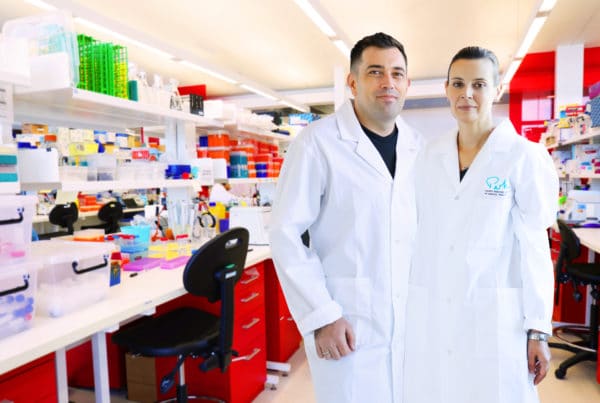Phase 3 drug trial for rare chronic kidney disease achieves key milestone
Read More
Impaired kidney function is common, affecting up to one in six adult Australians, with one in three at risk. In most cases kidney disease is not apparent until almost all kidney function is lost. For those who progress to end stage disease, outcomes are poor and the cost of providing kidney transplants is high, estimated at >$12b over the coming decade.
On this page, you’ll find information about:
Kidney diseases are often caused by a combination of genetic and environmental factors. Even when there is a strong genetic predisposition to developing kidney disease, whether people progress to advanced renal impairment may be modified by their lifestyles. Unfortunately, as kidney disease rarely causes any symptoms (until late) a major barrier to improving outcomes is identifying people early.
Several medical interventions have been proven to slow the progression of renal impairment and in some cases, for example autoimmune diseases affecting the kidneys, can halt the disease process. Once severe impairment has occurred renal replacement therapies may be required, including dialysis and transplantation. For eligible patients, transplantation usually offers the best outcomes, however this requires life-long immunosuppression to prevent the body from rejecting the transplant.
Achieving a balance between the prevention of graft rejection and the risks of excessive immunosuppression, leading to infections and cancers is a major clinical challenge in transplantation. By developing assays to enable accurate measurement of immune responses, for example to common infections that may be encountered after transplantation, we can begin to quantify the degree of immunosuppression experienced by patients paving the way for personalisation of immunosuppression regimens. This in turn should lead to improved outcomes.
For patients with renal failure who choose peritoneal dialysis, a major complication is the development of peritonitis (infection in the abdomen). The Translational Renal Research Laboratory is studying interactions between common bacteria causing peritonitis and the cells that line the abdomen and orchestrate the host response to infection. In addition, it has commenced a first phase trial of two medications (tPA and DNase) designed to reduce complications in dialysis patients with peritonitis.
The Laboratory for Molecular Endocrinology and Pharmacology studies kidney disorders at the molecular level, by investigating key receptor complexes involved in chronic kidney disease, as well as mutant receptors responsible for nephrogenic diabetes insipidus and nephrogenic syndrome of inappropriate antidiuresis.
A groundbreaking new treatment for chronic kidney disease that controls protein leakage from the kidneys-a common symptom of chronic kidney disease-was developed in this laboratory at the Perkins. The treatment is progressing through clinical testing, in collaboration with Dimerix Ltd, and is now undergoing clinical trial (Phase III).


